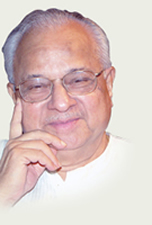First exposure to Spiritual essence
From his conversation with his followers, we find that Socrates never did anything by his own will and intent but depending on power that prompted him from within, his experiences being the involuntary responses. In Phaedo, we find him clarifying Cebes that he compose poems because he : ‘. . was trying to discover the meaning of some dreams and I wrote them to clear my conscience, in case this was the sort of art that I was told to pursue. The same dream had kept on coming to me from time to time through out my life, taking different forms at different times, but always saying the same thing ‘Socrates pursue the arts and work hard at them’, I formerly used to suppose that that it was urging me to do what I was doing . . . for philosophy is the greatest of all arts and that was my pursuit. I thought just in case the dream meant, after all that I should follow the popular kind of art, I ought to follow it and not disobey. It seemed safer not to depart before salving my conscience by the composition of the poems in obedience to the dream . So I wrote in honour of the god for who the ceremonies were being held . . .’.
These dreams seem to have acted even as the ‘. . . Oracle or sign which comes to me and is the divinity . . . which is kind of voice . . . (which) always forbids but never commands me to do anything which I am going to do.’ And which ‘I go about the world obedient to the God, and search and make enquiry in to the wisdom of any one , whether citizen or stranger, who appears to be wise, and if he is not wise then in vindication of the Oracle I show him that he is not wise and my occupation quite absorbs me.’ The Oracle or the sign came to him and which is the divinity, a kind of voice came to him in his child hood and continued to be with him from then onward been guiding him during his trail or during the moment of his death.
Ramana Maharshi’s first exposureto his inner voice or the self or the I within was not very much unlike that of Socrates, having decided to heed it from the very source and not from any external sources. He ‘dramatized the event of Death. I laid myself on the back with my limbs stretched out stiff . . . and imitated a corpse so as to give greater reality to my inquiry. I held my breath with my lips closed tight, so that no word either I or any other word may come out. ‘Well then,’ I said to myself, ‘this body is now dead. It will be carried stiff to the cremation grounds, there to be cremated and reduced to ashes . .’ coming to a final conclusion ‘that it is the body that dies does the death of the body means that I am dead? Is the body, I? The body is insentient and inert, whereas I feel the presence of my personality and the resonance of the ‘I’ too within me and without the body. Then ‘I’ should be the spirit transcending the body. The body seems to die, not the spirit, for Death cannot touch it. That means ‘I’ am the Deathless spirit.’
Then with one stroke the entire puzzle fell in places, the solution resolved and the methodology suggested without being strict, severe or stringent suggested as the base and basis of spiritual awakening amidst the digressing diversions of the empirical life induced by sensory instruments. From that time onward his quest was to further confirm his awareness of the I within himself which he designated as his father, the source of all his Wisdom. Therefore he wrote in the note left to his family words spiritually significant, ‘I have set out in quest of my father in accordance with His command. It is on virtuous enterprise that this has embarked ; therefore let none grieve over this act and let no money be spent in search of this’. His detachment with his body was intense and he remained in that trance-like Bliss of Beatitude. In later days he recalled some of these events, saying ‘Some times I opened my eyes and it was morning, sometimes it was evening. I did not know when the Sun rose and when it set’ His sadhana was to be receptive to the ‘I’ within.
BACK NEXT

